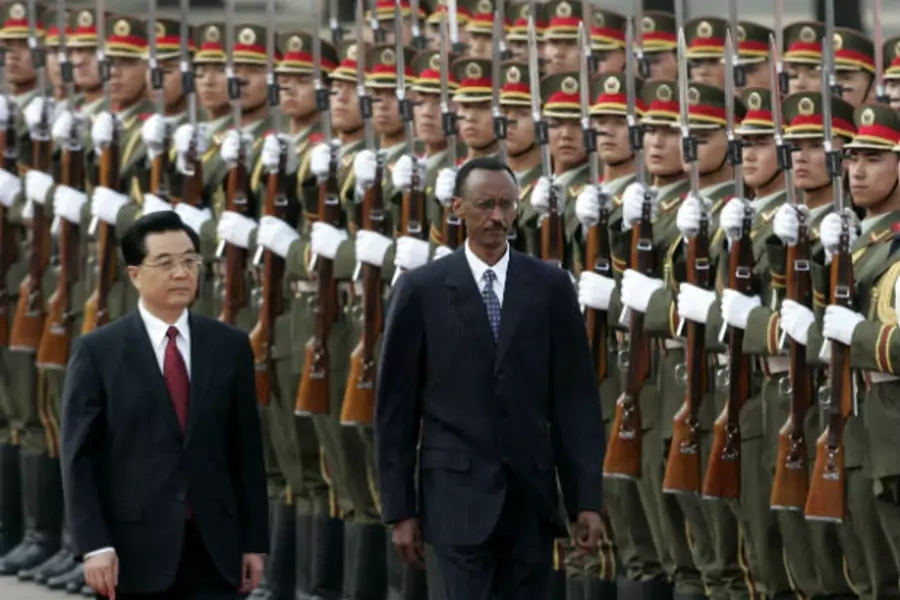Emerging Voices: Richard Dowden on World Bank and IMF Involvement in Africa

More on:
Emerging Voices features regular contributions from scholars and practitioners highlighting new research, thinking, and approaches to development challenges. This article is from Richard Dowden, the director of the Royal African Society and author of Africa: Altered States, Ordinary Miracles. Here, he discusses the work of the World Bank and the International Monetary Fund in Africa--and how history will evaluate their role.
I feel sorry for the World Bank and the International Monetary Fund.
In the 1990s they were masters of the world. The end of the Cold War proved that free market capitalism had won out over state-controlled socialism, and the Bank and the Fund were given the role of liberalizing the world’s markets and ushering in an era of prosperity and peace.
Traveling to the capitals of Africa in that period I met bright young World Bank men (the era of equality had not yet broken), missionaries of monetarism bearing the bible of free market prosperity. Many, like all zealots, believed that the greater the pain, the greater the gain. Hundreds of thousands of state employees were thrown out of work when government spending was slashed and life savings were wiped out when currencies sank like stones after being “floated.” The men from the Bank, however, dismissed these as inevitable side effects of essential change.
The rulers of these formerly one-party states, of course, had access to hard currency so they bought up privatized state companies and state land. Many used their wealth to form new political parties and hold onto power. They became the owners of their countries as well as rulers. But this was politics—not in the brief of the Bank or the Fund. When Western countries pushed for political liberalization including multiparty elections, some dictators lost power but many were able to use their wealth and position to win the votes. Hardly surprisingly, with little to lose, the discontents found weapons and started rebellions. By the end of the 1990s, twenty-six of Africa’s fifty-two countries had suffered civil wars.
Nor did the Washington Consensus—as the policy of the Bank and the Fund was called at that time—deliver prosperity in Africa. When Africa’s growth rates did begin to change dramatically around 2000 the main driver was not Western policy but the engagement of the East. China’s need for raw materials took its companies to Africa where the Chinese state made secret deals with presidents to obtain the minerals they needed. In parts of Africa where Europeans and Americans now feared to tread, Chinese involvement gave African economies a huge boost. From about 2000, along with mobile technology, the Chinese engagement made African economies start to grow again.
African presidents liked the Chinese because they did not lecture them about human rights and free speech as Western governments did. And the Chinese delivered highly visible new infrastructure projects: airports, roads, parliament buildings—and the occasional presidential palace.
At last African governments had an alternative partner and could use the Chinese—and later India, Brazil, Russia, and other countries—to push back against Western political pressure, including the dictates of the Bank and the Fund.
Even the most pro-Western governments now had wiggle room. The smartest rulers maintained good relations with West and East. Yoweri Museveni in Uganda, Paul Kagame in Rwanda, and Meles Zenawi in Ethiopia encouraged Chinese engagement but bought into the West’s agenda just enough to make themselves strategically indispensable. They got themselves into the position where Washington and London and Paris needed them as much as they needed Western support.
Around this time Western development fashion changed. The big infrastructure project gave way to the human development approach. Instead of funding glossy new roads and massive dams, the Bank funded less visible programs in health and education. The money was channeled through governments, which of course claimed the credit for themselves.
It may be that economic historians will demonstrate that the Bank and the Fund did help lay the foundations of Africa’s economic revival. But in the minds of most people it was China. At the same time China was also making goods such as radios, watches, shoes, and clothes that Africans could afford. So most Africans see China, not the Bank and the Fund, as the catalyst of their prosperity.
The Bank and the Fund are still associated in the minds of most people with the bad times of the 1990s. And now that there are alternative sources of funding and investment, the Bretton Woods Institutions no longer have a monopoly on economic ideology or control. Yet they still have huge resources and influence. The recent spurt of economic growth in Africa may not have done much for the poor, so the question the institutions face now is how to develop a new policy to help those left behind.
More on:
 Online Store
Online Store